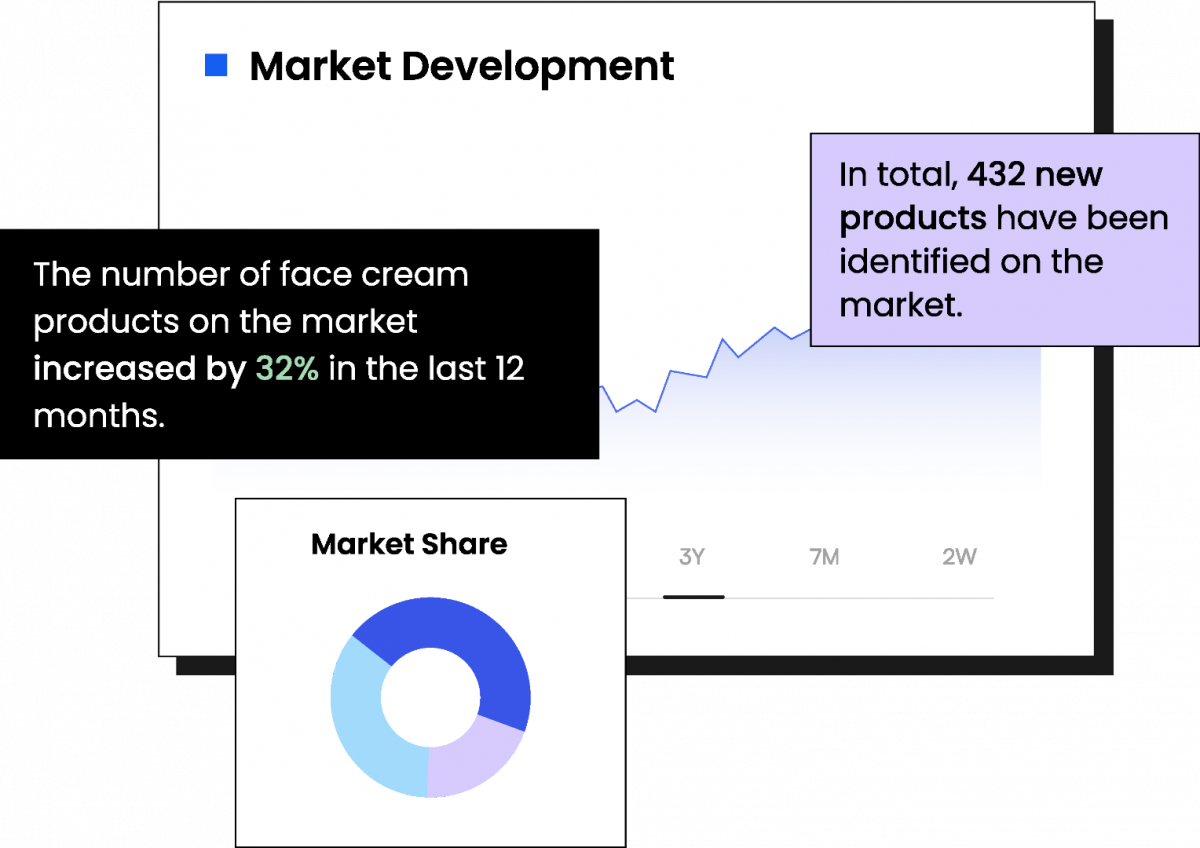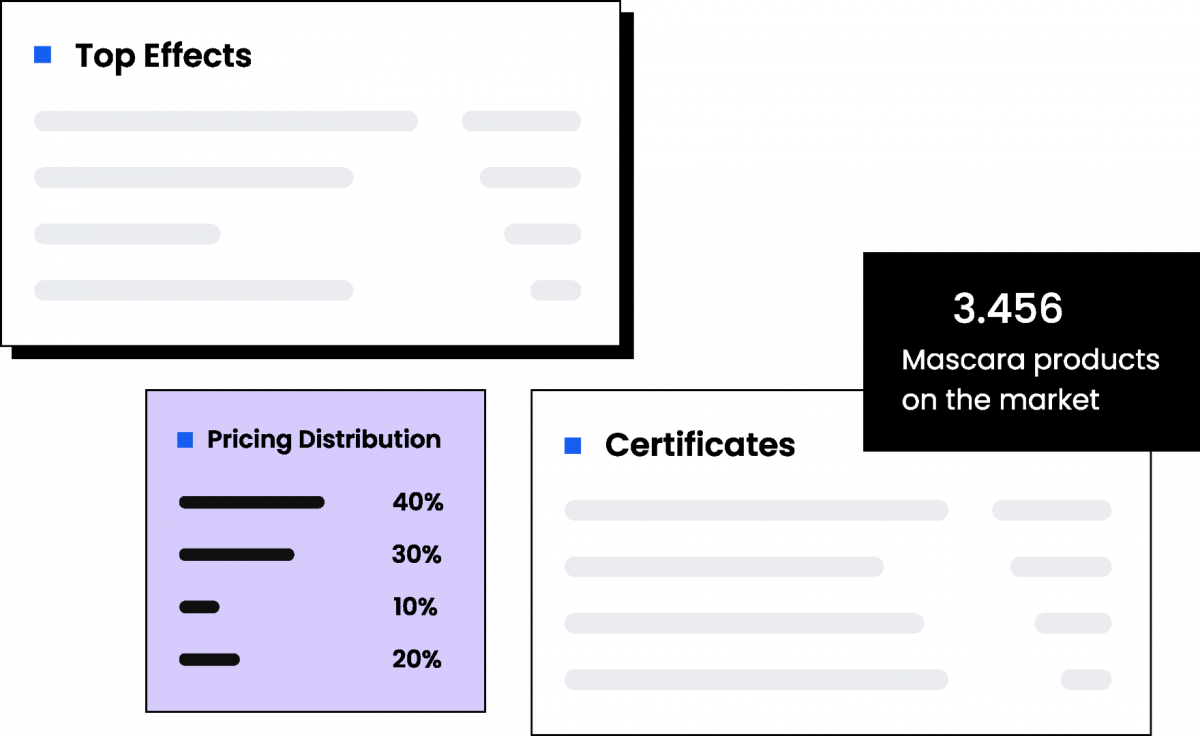From Data-Driven Socks to the OS for consumer products lifecycle optimization
Why we invested in eyva
In today's rapidly evolving world, businesses are constantly facing new challenges and opportunities. To stay ahead of the curve, it is essential to have a deep understanding of market trends, consumer behavior and product innovations. However, working with these vast amounts of signals from various sources, including social media, customer reviews, search data, product data and so forth, is no easy task, given that the insights generated by data and not the data in itself is the valuable element. To tackle this challenge, Djef and Wilhelm developed the product "eyva", an AI-powered operating system for consumer goods companies, allowing them to create concepts with ease, 70% faster product development and creating winning product portfolios.
The Backstory
The story of eyva begins with an unlikely duo - a former rocket scientist named Wilhelm and an Indonesian-born former business consultant named Djef. Back in 2016 when e-commerce was still all the hype, Djef and Wilhelm wanted to start an online business. Taking a rather structured approach by evaluating various product categories on different online platforms, they identified compression socks as a product worth selling online. Having had incredible success in selling their first batch of product on amazon, they, however, realized that what was more interesting than packing socks into boxes and sending them across Germany was the process behind how they identified the product to sell. Most of their decisions were guided by data, leading to the birth of eyva – a decision-making engine encapsulated as a product. We were happy when the founders joined the xdeck accelerator in 2020, which marked a pivotal moment for our joint journey.
As they started exploring the problem further, Djef and Wilhelm recognized a substantial gap in companies' ability to make data-driven decisions. This realization prompted them to establish a profitable tech-enabled consulting business, catering to renowned names such as Lidl, SAP, Babor, and SME knitting factories like Halfen.

When companies still rely on gut feeling
Consumer goods companies are still facing a product failure rate of 75%. Developing a new product can often range from 12 to 18 months, with the majority of the time spent on non-value adding tasks around researching competitors, market trends or customer feedback to existing alternatives. Despite this significant effort, many companies still rely on gut feeling due to challenges in accessing and utilizing relevant data efficiently. Reports and expensive insights services, while available, are often too narrowly focused. Departments like product management, marketing, and R&D invest substantial resources in finding the right data points, only to face issues with outdated, hard-to-work-with, and difficult-to-communicate information. And then, their function-specific data does not match the rest, given there are multiple data providers and analytics steps involved. So instead of relying on their gut feeling, companies should put data at the heart of decision-making.
Understanding the need for data in decision-making, the founders embedded eyva directly into their users' workflows. The product, developed in close collaboration with user personas such as product managers and later extended to marketers, offers easy-to-use analytics based on relevant datasets for the industry. Leveraging AI, eyva enables users to gain deeper insights that are connected through the whole lifecycle of a product, while ensuring information is easily digestible. The emphasis on collaboration across departments reinforces the importance of data-driven decision-making throughout the whole value chain and not only within a single department of a company.
eyva in the time of generative AI
In an era where large language models (LLMs) seem to be taking over, eyva remains grounded in the understanding that AI only works with the right data. While there are vast amounts of data out there, the devil is in the details, as products will have to be thoroughly mapped to ingredients therein, hashtags attributed to them, and feedback written over time. The eyva team has developed their own infrastructure to ingest all this data from different sources in quasi-real time. More important and this is where eyva differs from competitors, they also spent significant resources on an AI matching model, that is connecting all the mentioned data points so they can be used in every step of the product lifecycle. As we all have heard numerous times over the past months, models can only be as good as the data they use, eyva did make sure to have all things in place to reap the benefits of the GenAI-wave right now.

Why we invested in eyva
Our decision to invest in eyva is rooted in several key factors. Firstly, the founders' genuine passion for solving a problem they've intimately experienced themselves over the years. The team has adapted to changing market conditions several times over the past years, giving us confidence that they are in love with the problem and not their solution. The clear value proposition, co-developed with customers, aligns closely with industry needs. Hearing customers talk about the product highlights the industry’s needs for their solution, given that no customer could imagine their day-to-day without eyva anymore. The technological advantage, built over years, stands out as a clear differentiator. The team has spent years to develop a sophisticated data ingestions pipeline, matching engine based on knowledge graphs and lately added gen ai-capabilities to its products to make insights generated by their superior data even more accessible. Most importantly, the founders strike a perfect balance between embracing the risk of growth and ensuring efficiency, showcasing their strategic vision for sustainable development.
eyva and xdeck
„xdeck has been an incredible partner in helping us to develop and launch eyva. Since we started to work with Nik in the accelerator, we knew that their understanding of the problem we want to tackle would be beneficial for the long-term development of our company. We are very happy with their hands-on support and look forward to continuing our partnership in the future.” - Djef Rifamole
In summary, our investment is not just a bet on a product but a belief in a vision that reshapes how companies approach and utilize data for strategic decision-making, especially in the dynamic consumer industry.

